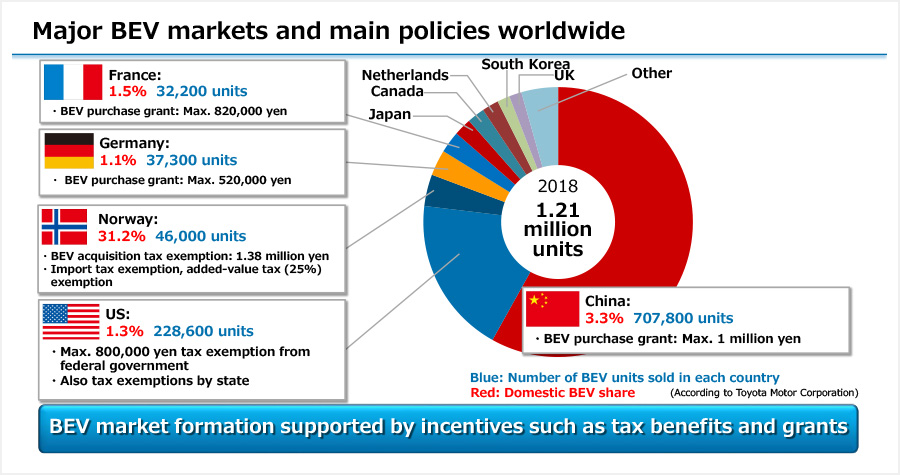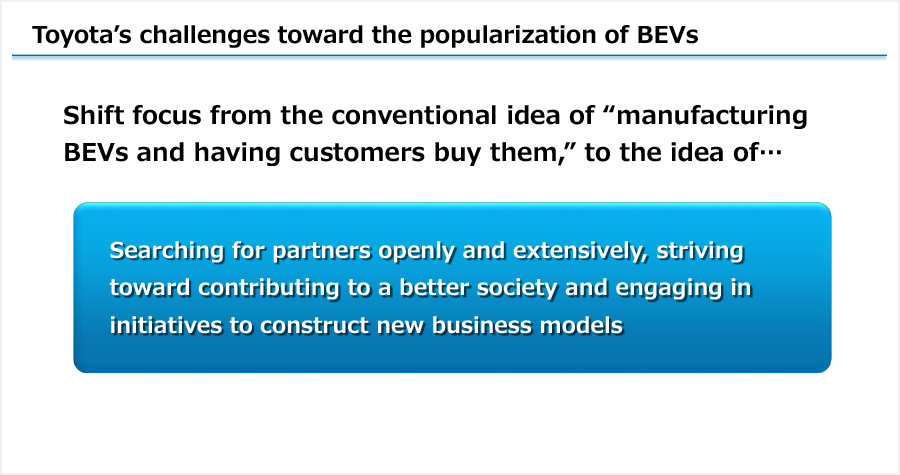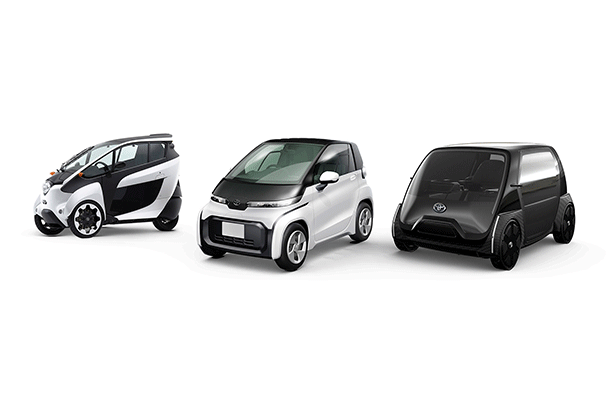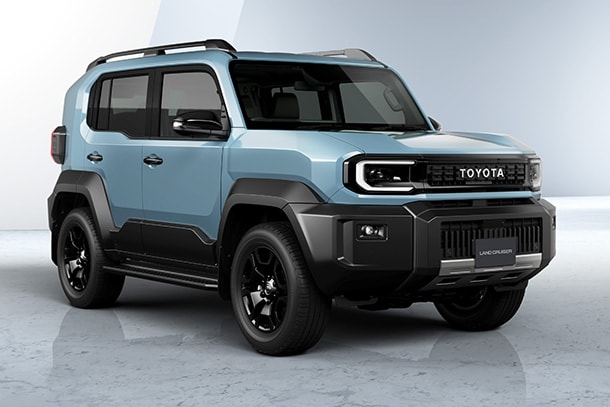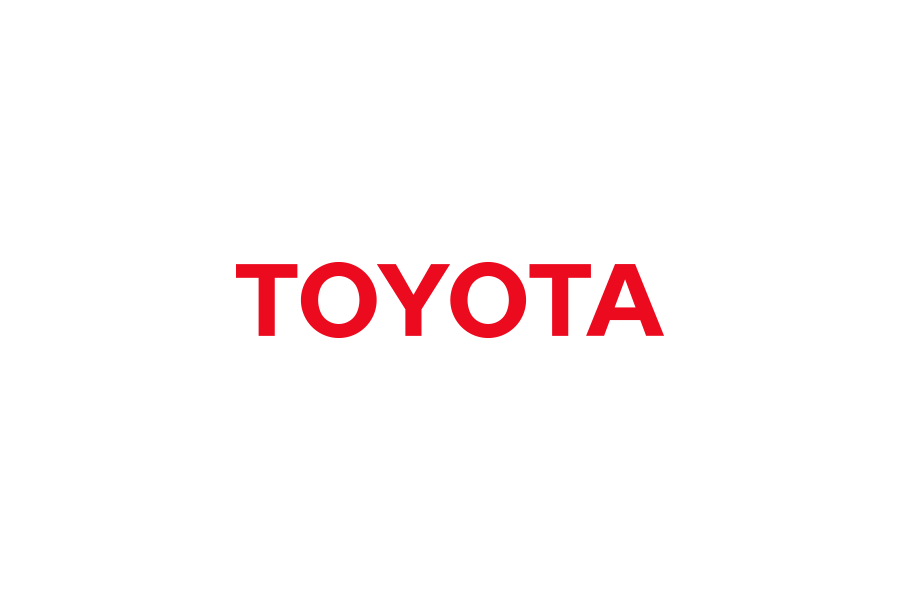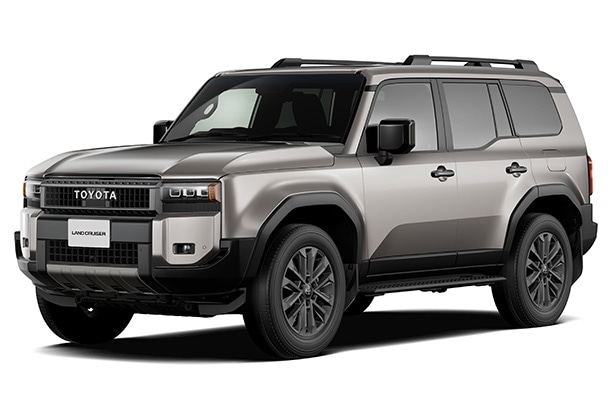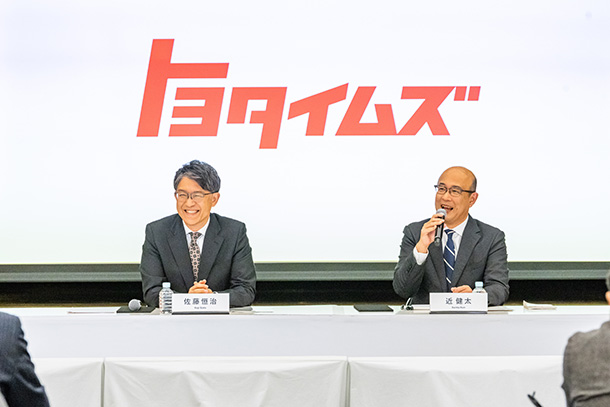Jun. 07, 2019
1) To popularize BEVsDevelopment of business model
This briefly summarizes BEV markets around the world today.
In 2018, approximately 1.2 million units of BEVs were sold worldwide.
More than half of those were sold in China, followed by in the United States, in European countries, and in Japan.
All of these markets are formed under the regulations and BEV incentive policies of local and national governments.
Toyota believes it must quickly ready BEVs that compare favorably with conventional vehicles and that will be chosen by its customers.
In other words, there is the need for BEVs that can be popularized, regardless of government promotion measures.
This introduces Toyota's planned basic approach for popularizing BEVs.
Toyota will not be constrained by the conventional business model, under which it would simply develop and manufacture BEVs, wholesale them to dealers, and deliver them to customers.
Rather, it will start by thinking about what it must do to better serve society.
Toyota will search for partners in an extensive and open manner and, together with them, will create a new business model.
This is an overview of Toyota's envisioned business model for the popularization of BEVs.
To meet the challenges of the popularization of BEVs, Toyota will start by improving product strength by using highly durable and high-performance batteries.
Toyota will also make maximum use of BEVs and their batteries, all the way from manufacturing to disposal.
In concrete terms, in addition to sales, Toyota will expand its leasing initiatives, and, in an effort to get the most out of the life of each battery, it will systematically collect BEVs that have been used by its customers and, after inspecting the status of the batteries of such vehicles, will, as appropriate, distribute such vehicles as pre-owned BEVs, use their batteries as service parts, or apply their batteries to uses other than in automobiles, among other actions.
Furthermore, Toyota will prepare peripheral services such as recharging services and insurance services most suited to BEVs.
Toyota wants to create such a business model together with partners from various fields.
Through direct dialogue with its customers, Toyota would like to develop and provide products that meet customers' needs.
